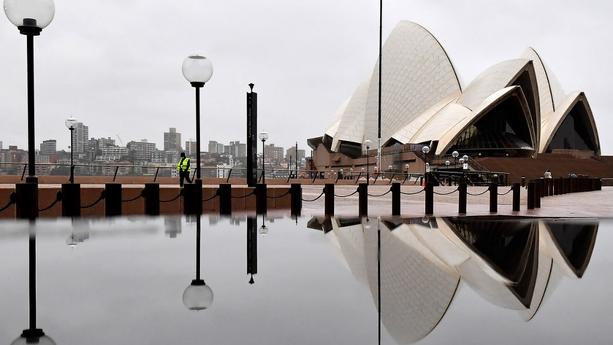 A security guard patrols around the Opera House on Oct 11, 2021.
(SAEED KHAN / AFP)
A security guard patrols around the Opera House on Oct 11, 2021.
(SAEED KHAN / AFP)
SYDNEY - Australia's central bank, the Reserve Bank of Australia (RBA), has once again lifted interest rates by 0.5 percentage points, marking the first time the bank has lifted rates for four consecutive months.
On Tuesday, RBA Governor Philip Lowe said the rise in interest rates was due to the "high priority" of bringing inflation down to the 2-3 percent range.
Since the first increase in May, interest rates have risen by a total of 1.75 percentage points to 1.85 percent, the fastest hike in the Reserve Bank of Australia's records
"The path to achieve this balance is a narrow one and clouded in uncertainty, not least because of global developments," said Lowe.
"The Board is committed to doing what is necessary to ensure that inflation in Australia returns to target over time."
Since the first increase in May, interest rates have risen by a total of 1.75 percentage points to 1.85 percent, the fastest hike in the RBA's records.
ALSO READ: Australia braces for 'rough ride' with highest inflation in 21 yrs
Inflation in Australia is now running at 6.1 percent year-on-year according to data from the Australian Bureau of Statistics (ABS), the highest level since December 1990.
Lowe said factors such as gloomy global economic growth, the conflict in Ukraine and flooding in Australia's east were all contributing to demand-side inflation.
He added that it was expected the Australian economy would continue to grow this year, but the pace of growth would slow.
"Employment is growing strongly, consumer spending has been resilient and an upswing in business investment is underway."
READ MORE: Australia sees highest COVID-19 death toll in recent months
Professor Jerry Parwada from the University of New South Wales Business School told Xinhua in a recent interview that he expected interest rates would normalize at around 3 percent by the end of the year.
"Rough indications are that inflation will peak at over 7 percent by year end, which would be countered by regular interest rate increases that could rest at about 3 percent by December," he said.
He added that the rises would continue to have a significant impact on Australians, especially given high levels of household debt both in the form of mortgages and personal loans.


